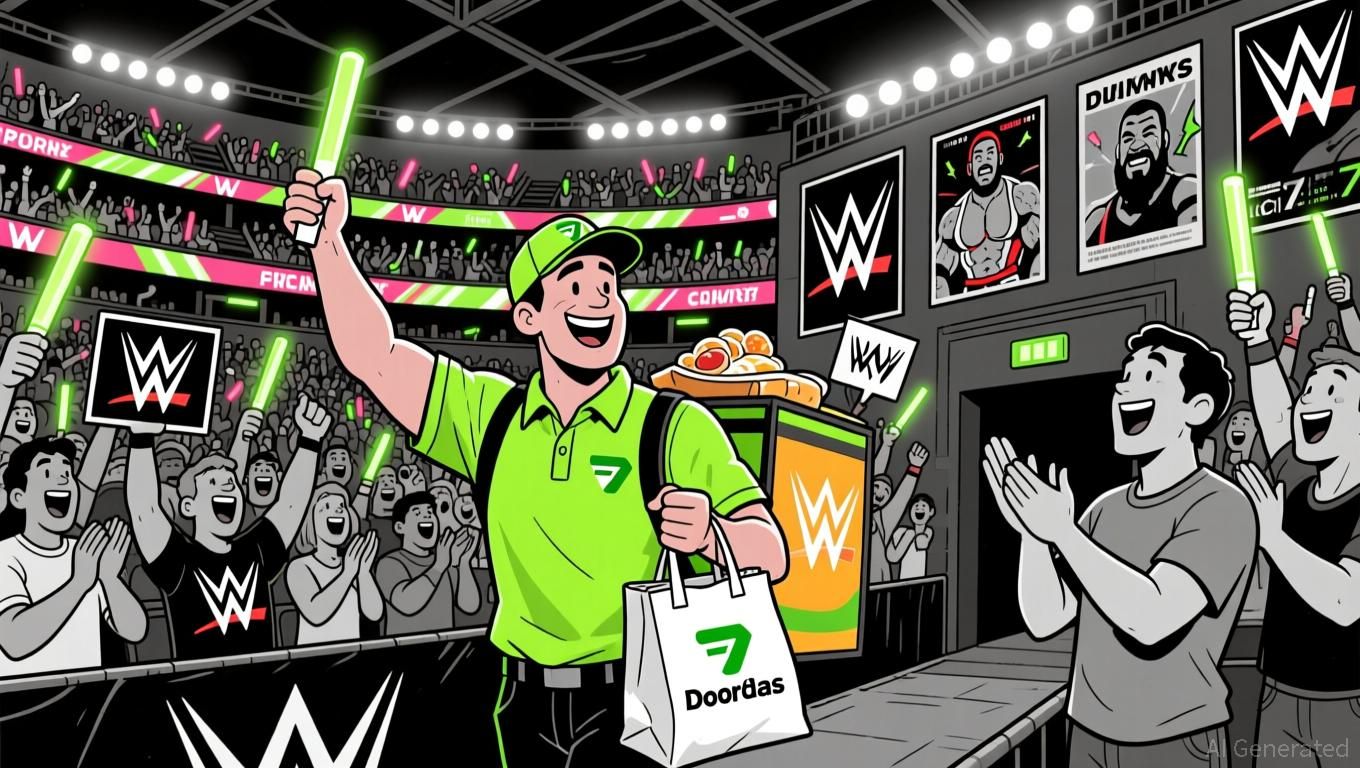DASH drops 10.27% after CEO donates 5,000 shares to relatives
- DoorDash's DASH stock fell 10.27% in 24 hours after CEO Prabir Adarkar gifted 5,000 shares to family, sparking investor concerns. - The partnership with WWE and UFC aims to boost brand visibility through event integrations and fan engagement. - Despite short-term volatility, DASH has risen 43.29% year-to-date, reflecting ongoing strategic expansions and market resilience.
As of November 22, 2025,
CEO Transfers 5,000 Shares to Family Members
On November 19, 2025, Prabir Adarkar, who serves as President of
This disclosure has caught the eye of market analysts, since insider activities—especially large gifts—can impact how investors view the stock. Although this was not a sale or reduction of holdings, it represents a significant change in the executive’s ownership and may have contributed to the recent fluctuations in DASH’s share price.
Collaborations with WWE and UFC
Even with the recent dip in stock value,
Through this partnership, DoorDash will be featured at WWE and UFC’s most prominent events and across their digital platforms, including live shows and online content. The alliance is designed to combine the global influence of these brands to boost fan involvement and introduce new experiences across various channels.
This strategic move is expected to deliver lasting brand benefits, especially as DoorDash continues to grow its presence in the U.S. delivery industry. The company reiterated its dedication to connecting customers with entertainment, aligning with its broader vision of bringing people closer to what they enjoy.
Strategic Partnerships and Market Standing
The recent WWE and UFC partnership is the latest in a series of initiatives by DoorDash to enhance its brand visibility and customer interaction. Previously, the company teamed up with Netflix for a “Stranger Things” campaign and collaborated with Universal for a “Wicked” promotion. These partnerships are part of a larger strategy to stay relevant in a rapidly changing consumer market.

The CEO also emphasized the company’s goal to “be present wherever our customers are,” highlighting DoorDash’s integration with multiple platforms and content creators. These efforts indicate a persistent drive to broaden both the digital and physical reach of the company, even as it faces economic headwinds and stiff competition in the delivery space.
The recent insider activity, along with ongoing strategic initiatives, underscores the fast-changing landscape in which DoorDash operates. While short-term price swings persist, the company’s long-term strategies continue to influence its market standing and investor outlook.
Disclaimer: The content of this article solely reflects the author's opinion and does not represent the platform in any capacity. This article is not intended to serve as a reference for making investment decisions.
You may also like
Zcash (ZEC) To Dip Further? Key Breakdown Signals Potential Downside Move

Pepe (PEPE) Testing Crucial Support Post-Breakdown — Can a Retest Move Halt the Downtrend?

Bitcoin Updates Today: Bitcoin Declines While Altcoins Show Strength: Different Trends Suggest Market Recovery
- Bitcoin's prolonged slump below $90,000 contrasts with altcoin resilience as ETF outflows and fading Fed rate-cut hopes drive market correction. - On-chain data shows retail capitulation and subdued whale activity, historically signaling potential rebounds amid oversold technical indicators. - Institutional adoption and tokenized assets sustain long-term crypto optimism despite short-term volatility and unrealized losses in digital treasuries. - Diverging investor behavior highlights altcoin utility-driv

KITE's Price Movement After Listing and Institutional Perspectives: Managing Immediate Fluctuations and Sustained Worth in AI-Powered Real Estate
- KITE's post-IPO volatility reflects retail sector fragility and AI-driven industrial real estate opportunities amid macroeconomic headwinds. - Q3 2025 earnings missed forecasts (-$0.07 EPS, $205M revenue) as rate cuts and OBBBA fiscal impacts amplified REIT sensitivity to market shocks. - Strategic divestments of noncore retail assets and 7.4% dividend growth signal portfolio optimization, though opaque institutional ownership complicates sentiment analysis. - Industrial real estate's AI-powered logistic